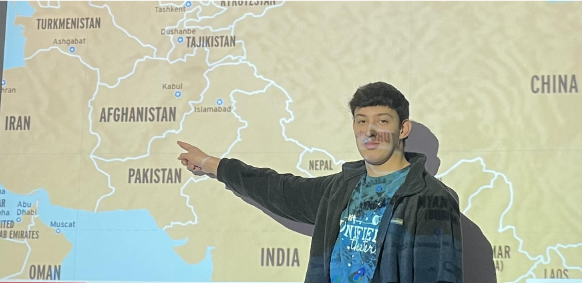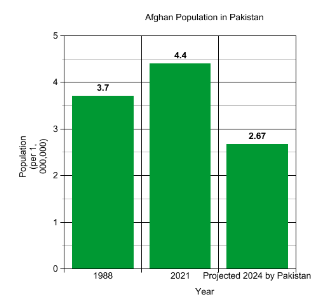
Pakistan, a Middle Eastern country with a long-standing history of conflict with its neighbor Afghanistan, has announced a major crackdown on immigration. Many of Pakistan’s illegal immigrants include Afghan people, forcing them to leave amid Pakistan’s November 1 immigration deadline.
While Pakistan and Afghanistan share the same religion, Islam, their respective governments have rarely seen eye to eye. For the past two decades, the United States has been fighting the Taliban in Afghanistan in hopes of keeping peace throughout the region. However, in 2021, after the United States military hastily pulled out of Afghanistan, the Taliban gained control of the country’s government and its people.
Unwilling to be subjected to the terrorism imposed by the Taliban, many Afghan people fled Afghanistan and moved to the democratic country of Pakistan. Munir Ahmed of AP News says that Pakistan has hosted about 1.7 million Afghans for decades. Additionally, over “Half a million people fled Afghanistan when the Taliban seized power in” August 2021.
However, Pakistan said that undocumented foreign citizens must leave by November 1. Christina Goldbaum and Safiullah Padshah of The New York Times say that this is due to “Increasing hostility between Pakistan’s government and the Taliban authorities in Afghanistan.” Unfortunately for these foreign Afghan citizens, many will end up moving back to Afghanistan where they will be exposed to the governing body they were trying to get away from.
Although it may seem like Pakistan is leaving the undocumented on their own, it is not without reason. Since the Taliban gained power, “Unfortunately there has been a 60% increase in terrorist attacks and a 500% rise in suicide attacks in Pakistan,” said Anwaar-ul-Haq Kakar, the Caretaker Prime Minister of Pakistan.
Since the deadline was announced, almost 350,000 Afghans have left, many returning to Afghanistan, and some hoping to seek refugee status in the United States. “At least 25,000 Afghans … escaped the Taliban takeover of Afghanistan in 2021 to Pakistan and are waiting to be processed to relocate to the U.S.,” said Munir Ahmed.
Maria Genca is an ESOL (English for Speakers of Other Languages) teacher at Hall High School and teaches students from all over the world, some of whom have entered on refugee status. Genca said “It’s extremely difficult. When leaving another country, you are dealing with a loss. You have to leave behind all your friends and everything you have known.”
This feeling is all too familiar for Afghan families who have left or are soon to leave their homes in Pakistan. Families are shown being crammed into buses with the little belongings they could take with them. Children are forced to leave their schools, friends, and for many, the only life they have ever known.
This situation has not received large amounts of media attention in the past weeks. Abbad Raza, a Pakistani-American senior at Hall High School said “The situation with the Afghani refugees has basically been swept under the rug. My family has briefly talked about it, although there isn’t much to say since there isn’t much coverage for us to form our opinions.”
The crisis between Pakistan and its Afghan refugees will continue to worsen as more refugees come under the Taliban’s rule. This will serve as a precedent in the future for what happens when people are forced to live under an oppressive regime such as the Taliban.






